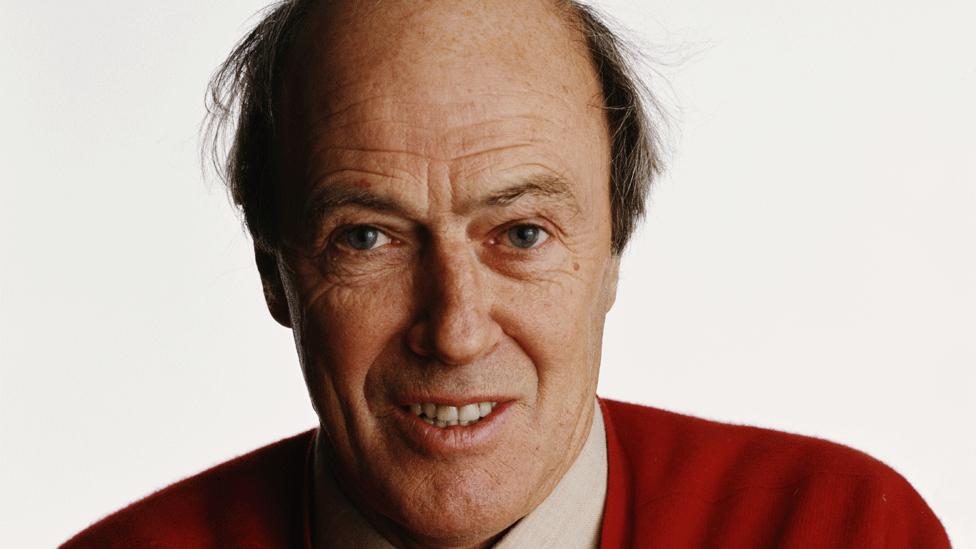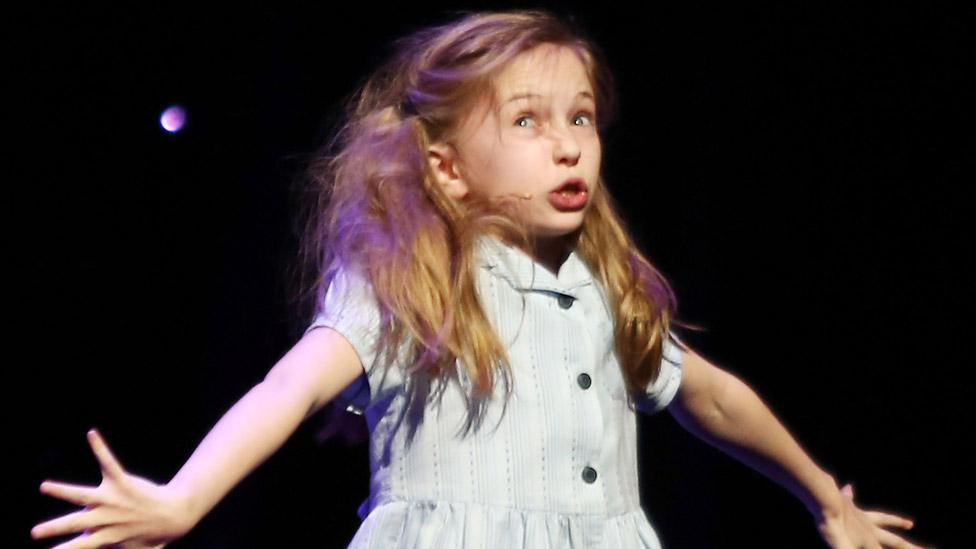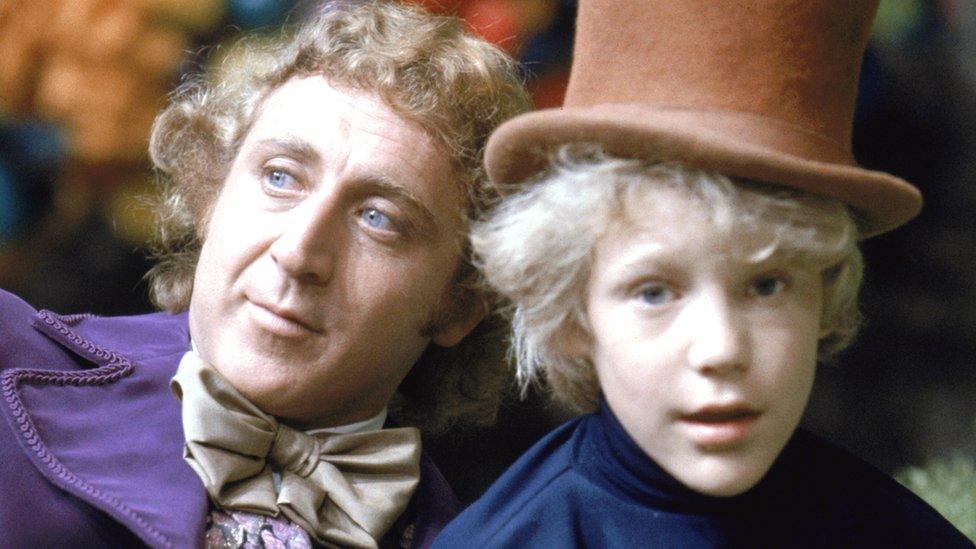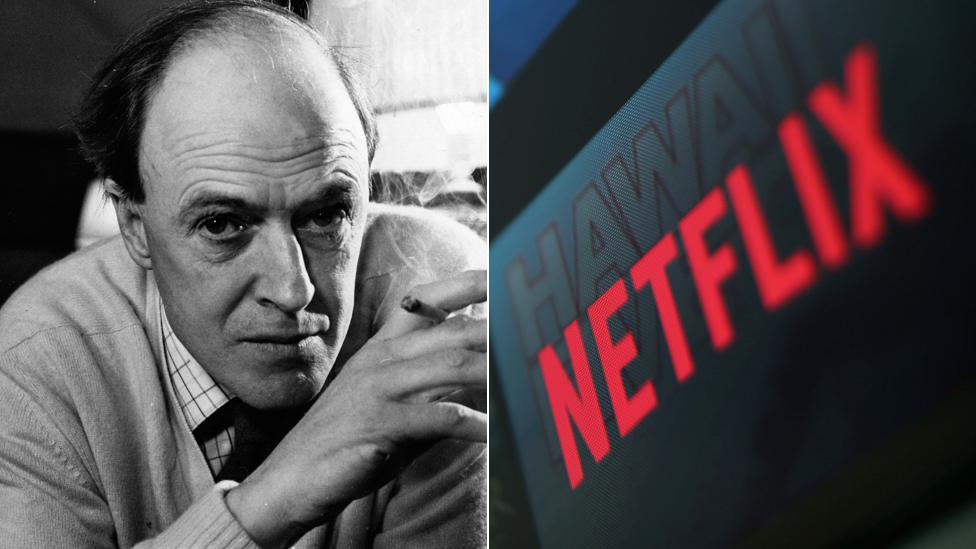Netflix lands golden ticket by buying Roald Dahl estate
- Published

Roald Dahl's books include Charlie and the Chocolate Factory, The BFG and Matilda
Netflix has bought the rights to Roald Dahl's classic children's books from the author's family.
The deal means the streaming giant will own creations like Charlie and the Chocolate Factory and The BFG.
Netflix will control what happens to them in publishing as well as TV and film - and receive the royalties.
It will also create numerous spin-off games, stage shows and other live experiences. Neither side would reveal how much the deal is worth.
The takeover means The Roald Dahl Story Company - which is run by Dahl's grandson Luke Kelly and was previously owned by the family and other employees - will now become a division of Netflix.
It earned £26m revenue from the author's work in 2019, according to its latest accounts.
In a joint statement, Mr Kelly and Netflix boss Ted Sarandos said they were "joining forces to bring some of the world's most loved stories to current and future fans in creative new ways".

Netflix is making a screen adaptation of Matilda The Musical
The move builds on a deal between the streaming giant and the estate in 2018, allowing it to make animated series based on his books.
Under that agreement, Oscar winner Taika Waititi is currently working on a series based on the world of Charlie and the Chocolate Factory, and Sony and Working Title are making an adaptation of Matilda The Musical.
In total, 19 TV shows, films, stage shows and live experiences are already in the works.
"These projects opened our eyes to a much more ambitious venture - the creation of a unique universe across animated and live action films and TV, publishing, games, immersive experiences, live theatre, consumer products and more," Mr Kelly and Mr Sarandos said.
Netflix made the announcement by revealing its name on golden ticket hidden inside a Willy Wonka chocolate bar wrapper.
The back of the ticket had the words "There is no knowing what we shall see" - a line from James and the Giant Peach.
Allow X content?
This article contains content provided by X. We ask for your permission before anything is loaded, as they may be using cookies and other technologies. You may want to read X’s cookie policy, external and privacy policy, external before accepting. To view this content choose ‘accept and continue’.
"As we bring these timeless tales to more audiences in new formats, we're committed to maintaining their unique spirit and their universal themes of surprise and kindness, while also sprinkling some fresh magic into the mix," Mr Kelly and Mr Sarandos added.
Who was Roald Dahl?
After working as a fighter pilot in the Second World War and then as a diplomat, the Welshman turned his hand to writing novels, short stories, poems and film scripts.
Throughout the 1960s, 70s and 80s he became known for best-selling children's books - many of which were later turned into films.

Gene Wilder as Willy Wonka and Peter Ostrum as Charlie Bucket in the 1971 film Willy Wonka & the Chocolate Factory
The writer, who died at the age of 74 in 1990, has sold 300 million books around the world, printed in 65 languages.
The Dahl catalogue also includes the likes of Fantastic Mr Fox, James and the Giant Peach, The Witches and The Twits.
Mr Sarandos and Mr Kelly said his stories contain "messages of the power and possibility of young people" and have "never felt more pertinent".
A "significant part" of the proceeds from the sale of the company will go towards setting up a new charity involved with children's health, anti-hate and anti-racism, they said.
In December, Dahl's family apologised for anti-Semitic comments made by the author in interviews in 1983 and 1990.

Follow us on Facebook, external, or on Twitter @BBCNewsEnts, external. If you have a story suggestion email entertainment.news@bbc.co.uk, external.
Related topics
- Published27 November 2018

- Published6 December 2020
